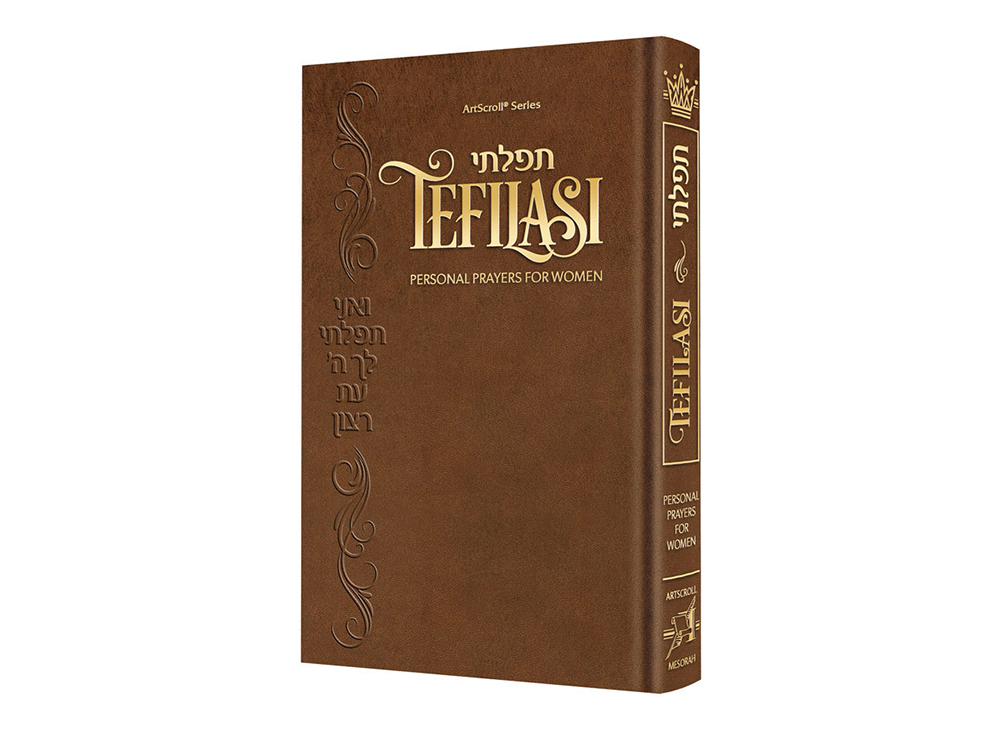
(Courtesy of Artscroll) It is with great pleasure that Artscroll presents the all-new “Ciment Edition Tefilasi,” a compendium of personal prayers for women. In both troubled and joyous times, this beautiful anthology serves as a heartfelt means for expressing your most profound hopes and aspirations.
“Tefilasi” is not just a prayer book… It’s a personal prayer companion. With facing Hebrew text and English translation, it includes a wide range of tefillos selected from a broad spectrum of authoritative sources, from prayers for one’s children and spouse to petitions for health, livelihood and special moments of gratitude. The dozens of tefillos include those for a kallah, for warding off ayin hara, for separating challah, for those in captivity, for faith, humility and purity of thought—and so much more.
We spoke with Rabbi Avrohom Biderman, who compiled the techinos in “Tefilasi.” Over the centuries, so many great Torah personalities have written techinos. How did you go about choosing which ones to include in this collection?
Rabbi Avrohom Biderman: “That may have been the most challenging part of this undertaking. Yes, there are many techinos that were written by Torah giants, and dozens more were considered. We certainly do not intend to be disrespectful of any that were not included in this collection.
Techinos are meant to come from the heart, recited with passion and emotion. Therefore, our guiding principles were to identify techinos that were inspiring and that reflect the needs of contemporary women, while at the same time keeping the volume a manageable size. Many techinos were authored by mekubalim and include Kabbalistic references, shaimos, etc. We did not include those both because they cannot be properly translated and because they are too esoteric to be meaningful to someone who is not well-versed in those concepts.”
The English translation is so flowing and readable. What were some of the challenges the translators had to deal with?
Rabbi Avrohom Biderman: “As noted, techinos are meant to come from the heart and are therefore written in a highly poetic style, frequently borrowing phrases from pesukim from Tanach, but using them in a completely different context. A literal translation would fail to convey the meaning and message of the techinos.
The readability of the translation is testimony to the skill of Rabbi Dovid Oratz—who did most of the translations—and the genius of Rabbi Nosson Scherman, who did some of the translations and edited the others.”
What are some of the life events and challenges that the techinos deal with?
Rabbi Avrohom Biderman: This volume includes a wide range of situations and needs—not to mention simple, everyday life.
A brief look at the table of contents takes us from starting our day right to lighting the Shabbos candles, from prayers for many aspects of spiritual growth to those for life, success and protection. Of course, there are supplications for parnasa, finding a shidduch, shalom bayis and raising a family, from prayers to be blessed with children to those for raising them properly. And so many more—prayers that come from the heart of the Jewish woman.









